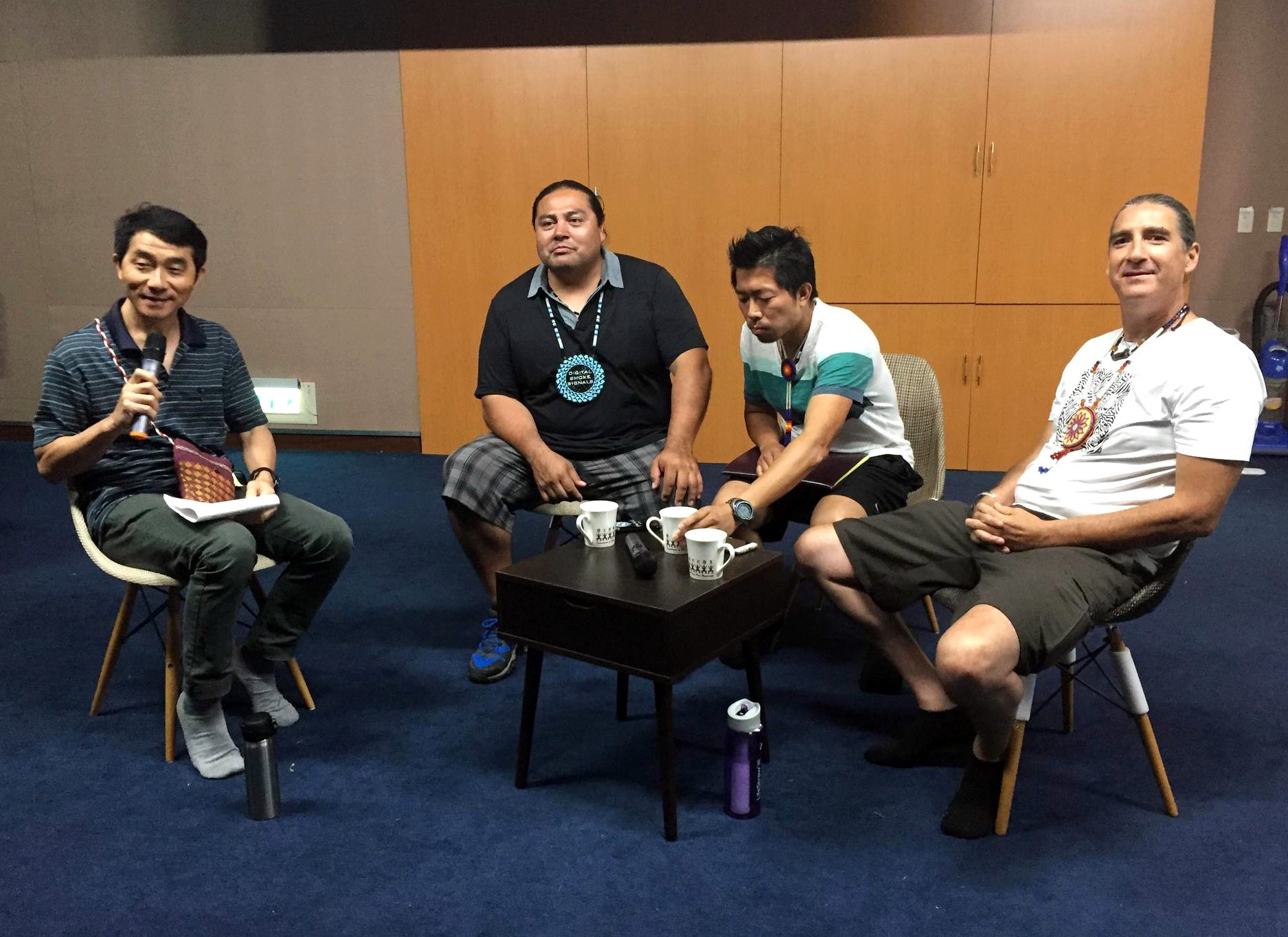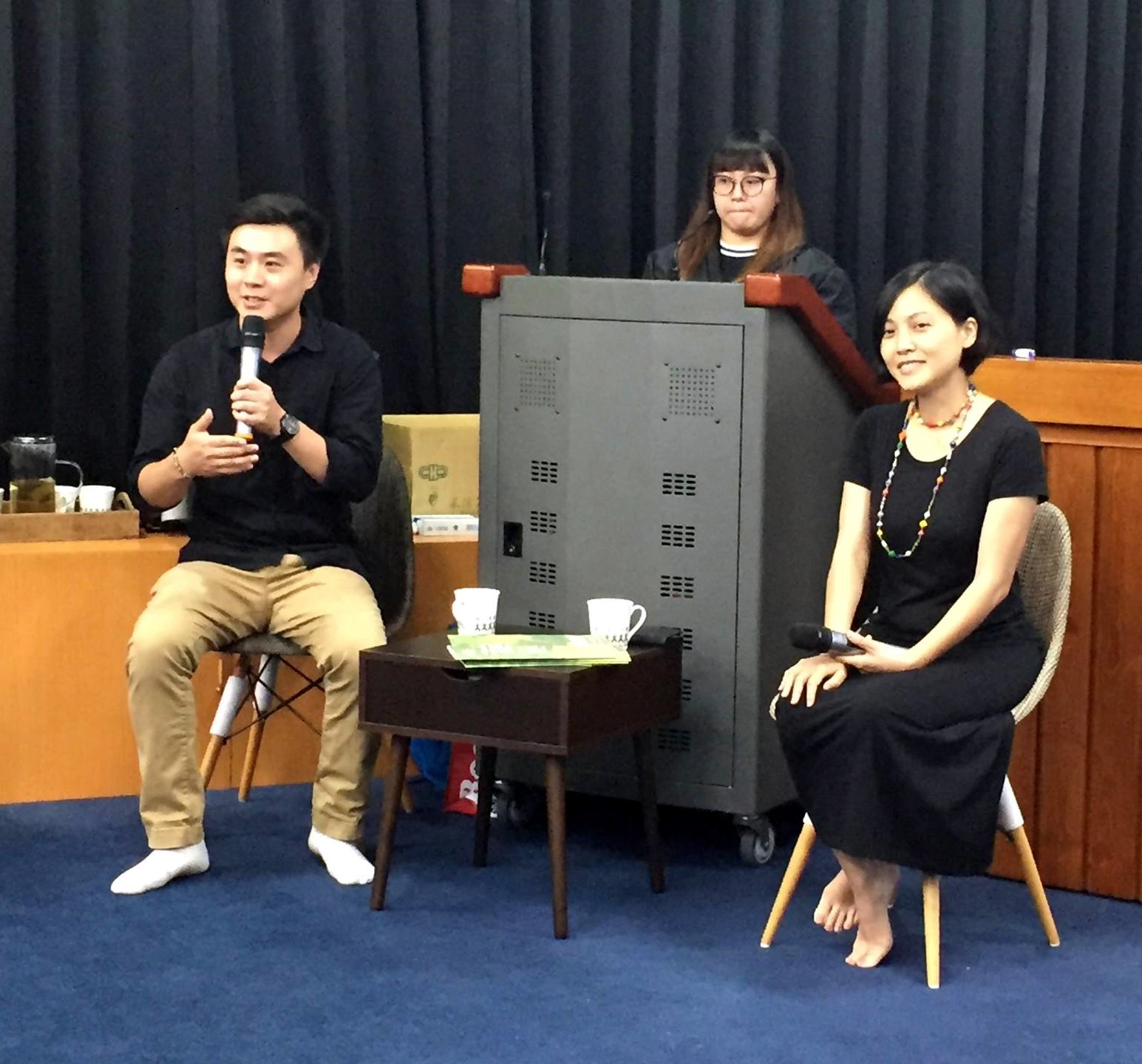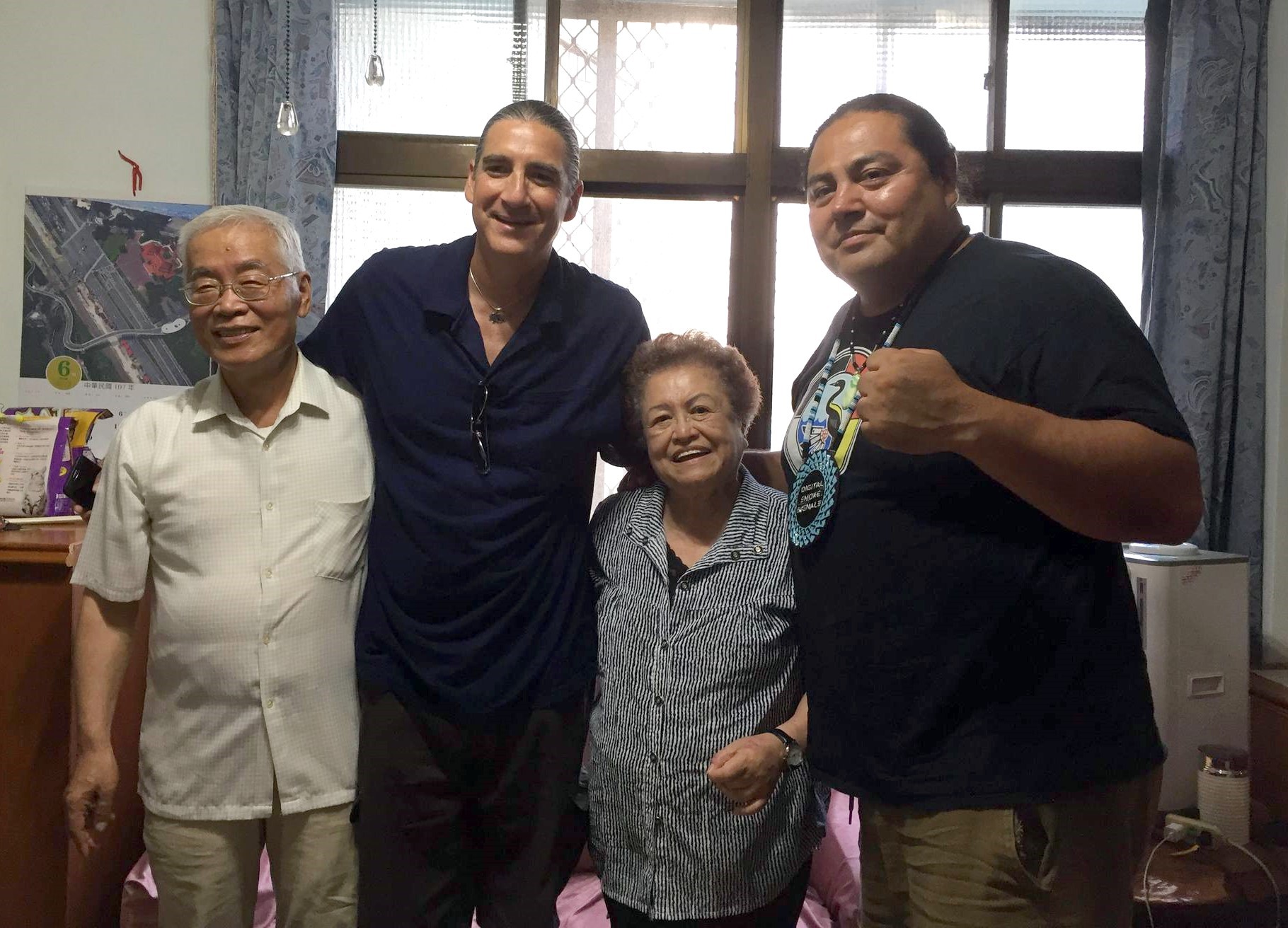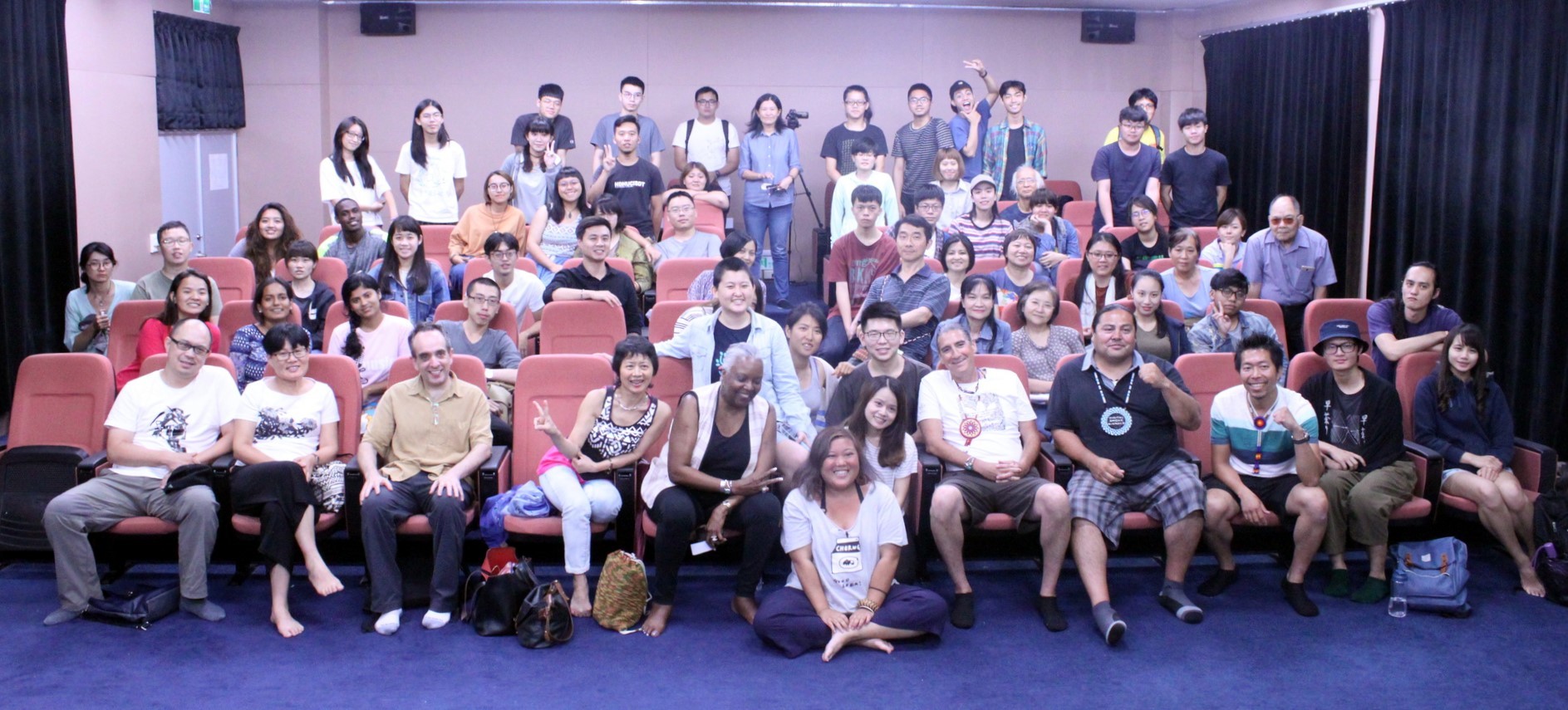
Dewey (second on the left), Director of Awake, and Kincaid, attorney, during the Q & A session after the screening of Awake hosted by Dr. CHEN Yi-Fong (left)
The Center for International Indigenous Affairs (CIIA) at NDHU invited Native American Director Myron Dewey (Newe-Numah/Paiute-Shoshone) and indigenous rights attorney Patrick Kincaid (Cheyenne) to Hualien for film screening and workship. Following the screening of Myron's directorial film Awake, A Dream from Standing Rock and a vibrant Q & A session, a socail gathering was hosted by CIIA for students, faculty members and community memebrs to continue and deepen the discussion about enviornmental justice issues.

Skaya Siku (right), curator of the inaugural 'Taiwan Indigenous Film Day in France' with session host Chun-Kai YANG (left)
During the Q & A session after screening Awake, Myron stated that the fight against Dakota Access Pipeline (DAPL) was not only about environmental protection, but also safety for indigenous women and children. As construction workers for the pipelines are mostly men, local indigenous women are being sexually abused, kidnapped, and sometimes missing. Kincaid explained that the pipeline construction not only failed to obtain consent of local indigenous communities, it is also a violation of the Equator Principle, a risk management framework where financial institutes that have signed the agreement are required to assess whether or not their investment projects are meeting evaluation criteria in term of social and environmental assessments, as well as stakeholder engagements. In the case of DAPL, at least 13 Equator Principles have been violated. It is particularly noteworthy that many international financial institutes have invested in DAPL, including four Taiwanese banks. Dr. CHEN Yi-Fong(陳毅峰), host of the screening and Q & A session, said that Taiwan Indigenous issues are extremely diverse, they are critical important point of entry into international affairs for Taiwan. Furthermore, through connecting common issues across the globe, a wide variety of perspectives would become accessible.
To increase opportunities for international exchange, CIIA also invited Dr. Skaya Siku(思嘎亞.曦谷, Truku Nation), curator of the inaugural 'Taiwan Indigenous Film Day in France', to speak at a session entitled 'Transnational Imagery Initiative' about her experiences curating the event. Skaya Siku, post-doctoral fellow at the Academia Sinica (PhD in Visual Anthropologyfrom École des Hautes Études en Sciences Sociales, France), described the curatorial process during which instead of hosting an entertaining festival, she made the conscious decision to utilize films to promote awareness for indigenous issues. Skaya explained the rationale behind selection of films that would encourage dialogues between ethnic groups and generations, as well as the careful arrangements in place to maintain the continual interest and participation of the audience throughout the event. The session's host, film director Chun-Kai Yang (楊鈞凱, faculty member of the Department of Indigenous Languages and Communications), commented on being very impressed upon learning the insights to the meticulous planning that goes behind the scene of a successful curator. Both Skaya and Yang believe that the most important motivation behind this highly visible transnational imagery initiatives is to let people encounter Indigenous peoples in Taiwan through the correct way so they can understand the significance and relevance of Indigenous issues in Taiwan.

Dewy and Kincaid visited a Truku community and met with the leaders of the resistance movement against the Asia Cement Corporation, Mr. and Mrs. Tien (田春綢夫婦) to share experiences with fighting for indigenous land
Since its inception, CIIA has not only played a critical role in facilitating international affairs of the College, but also contributed significantly to the promotion and building of connections among international indigenous issues. The efforts made by CIIA to provide opportunities for research and exchange on international indigenous issues for faculty members and students of the College have been increasingly recognized by relevant organizations both domestically and internationally.
In addition to the two exciting talks, CIIA also arranged Myron and Kincaid for a Truku community visit where experiences of fighting for land rights are exchanged. The speakers visited a Truku community, mine pit of Asian Cement Corporation, and Taroko National Park to see and understand first-hand issues of hunting and traditional territory rights. During community-based workshop, very vibrant discussions were engaged among local indigenous community members, two speakers, and all participants.

Group photo after the screening of Awake